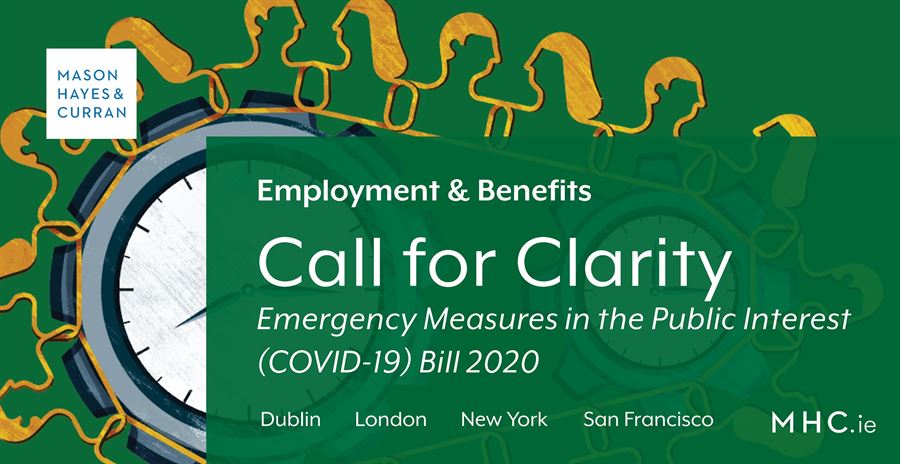
Late on Tuesday evening, 24 March 2020, the Irish Government published the Emergency Measures in the Public Interest Bill (COVID-19) Bill 2020. From an employer’s perspective, the Bill was welcomed for, amongst other things, the following:
-
Introducing a Temporary Wage Subsidy Scheme to help employers maintain jobs and incomes until normal business resumes
-
Amending the Redundancy Payments legislation to remove the entitlement for employees to seek a statutory redundancy payment after four weeks of lay-off
Temporary Wage Subsidy Scheme
In very simple terms, the Scheme provides for a rebate of up to 70% of an employee’s take home income subject to certain weekly caps.
In order to qualify for the Scheme an employer must be able to show at least a 25% reduction either in the turnover of the employer’s business or in customer orders being received by the employer. The detail of how this reduction is to be calculated has yet to be issued by the Office of the Revenue Commissioner.
The Bill as currently drafted, however, provides that an employer must have a firm intention of continuing to employ the employee, by making “best efforts” to pay the employee “some of the emoluments” while at the same time demonstrating that they are “unable to pay employees their normal wages”.
Confusion
There is a considerable amount of confusion and concern about what exactly this means. For instance, does it mean that an employer must be more or less insolvent in order to qualify for the subsidy? What about an employer who is solvent today, but knows it won’t be solvent in three weeks time if it continues to pay employees? What about employer cash reserves or loans which had been ear-marked for other things like vital capital expenditure projects? It is currenly unclear whether that money can or should be utilised.
The draft Bill provides for criminal liability, interest and penalites for an employer who gets this wrong.
Comment
We do not believe near-insolvency is what was intended but both the Bill and the Guidance which has issued from Revenue make for concerning reading. The Bill is due to be debated imminently and hopefully passed later today / tonight (26 March). We are hoping some of these issues will be clarified. We will in turn keep our clients and contacts updated as the situation develops, so watch this space.
For more information on the continuing impact of the COVID-19 crisis on your business, contact a member of our Employment & Benefits team.
The content of this article is provided for information purposes only and does not constitute legal or other advice.





